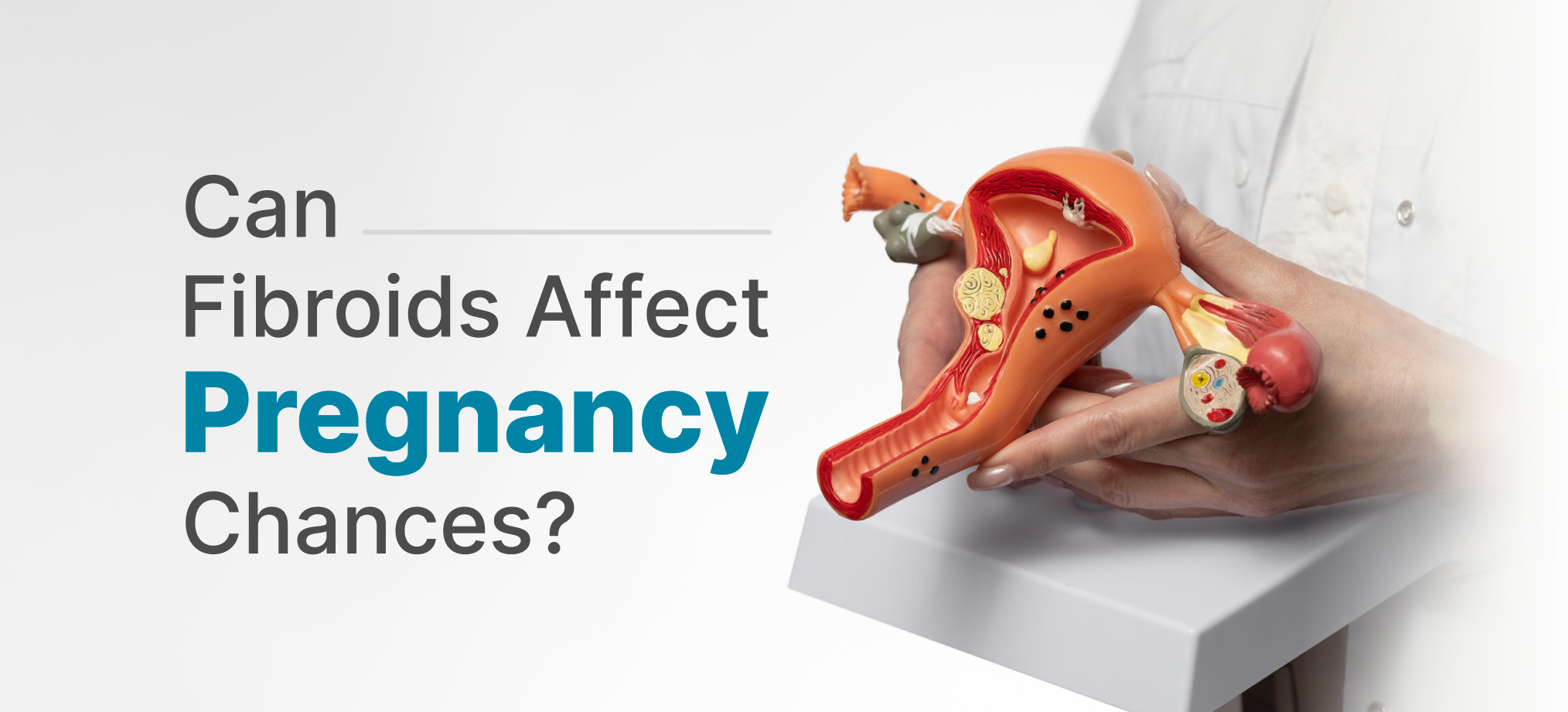- Home
- Blog
- Women Care
5 Tips To Prevent Stretch Marks During Pregnancy
Women Care
5 Tips To Prevent Stretch Marks During Pregnancy
By Apollo Pharmacy, Published on- 25 October 2023
Share this article
0
0 like

Pregnancy stretch marks are a common concern for many women. As the belly grows and the skin stretches to accommodate the growing baby, it puts stress on the elastic fibres of the skin, leading to the formation of stretch marks. While it's not possible to completely eliminate stretch marks, there are steps you can take to minimise their occurrence and severity. Using the best stretch mark cream during pregnancy can help improve skin elasticity and reduce the likelihood of developing stretch marks. In this article, we will delve into effective strategies for preventing pregnancy stretch marks.
What are the Causes of Stretch Marks?
To understand the best stretch mark prevention during pregnancy, it is crucial to know how they occur.
1. Changes in Hormones and Skin Elasticity
Hormonal fluctuations, particularly increased levels of progesterone, can affect the production of collagen and elastin in the skin. These proteins are responsible for maintaining skin elasticity. As a result, the stretching of the skin during pregnancy can lead to the development of pregnancy stretch marks.
2. Rapid Weight Gain
Pregnancy often involves significant weight gain, placing added stress on the skin as it expands to accommodate a growing baby. This rapid expansion can cause the underlying collagen and elastin fibres to tear, resulting in pregnancy stretch marks.
3. Genetic Predisposition
Some individuals may have a genetic predisposition to developing stretch marks during pregnancy. If your mother or other close relatives experienced pregnancy stretch marks, you may be more likely to develop them as well.
How to Maintain a Healthy Diet for Skin Elasticity?
Maintaining a healthy diet during pregnancy can help keep your skin healthy.
1. Balanced Diet
During pregnancy, a balanced diet plays a major role in maintaining skin elasticity and preventing stretch marks. Consuming nutrient-rich foods can promote collagen production, enhance antioxidant properties, support protein synthesis, and improve skin hydration. They include:
- Fruits
- Vegetables
- Whole grains
- Lean proteins
- Healthy fats
2. Nutrients
Incorporating nutrients into your diet can promote healthy skin and minimise the appearance of pregnancy stretch marks.
- Vitamin C: Vitamin C is essential for collagen synthesis, which is vital for maintaining the elasticity of the skin. They can be found in citrus fruits, bell peppers, strawberries, and broccoli.
- Vitamin E: Vitamin E has antioxidant properties that help protect the skin from damage caused by free radicals. They can be found in nuts, seeds, spinach, and vegetable oils.
- Zinc: Zinc plays a crucial role in protein synthesis, which is necessary for the formation of healthy skin cells. Sources include lean meats, seafood, legumes, and whole grains.
- Omega-3 Fatty Acids: Omega-3 fatty acids help maintain skin hydration and improve elasticity. Sources include fatty fish like salmon or mackerel, walnuts, chia seeds, and flaxseeds.
Tips for Preventing Pregnancy Stretch Marks
Preventing pregnancy stretch marks involves a dynamic approach catered towards lifestyle changes such as:
1. Moisturisation for Preventing Stretch Marks
Using moisturisers regularly can greatly improve your skin's elasticity and help prevent stretch marks. When selecting a moisturiser, look for ones specifically formulated for pregnant women. These products are usually rich in vitamins, antioxidants, and natural oils that help improve skin elasticity. Some popular choices include:
- Cocoa butter
- Shea butter
- Almond oil
- Coconut oil
2. Hydration
One of the key factors in preventing pregnancy stretch marks during pregnancy is staying hydrated. Drinking an adequate amount of water throughout the day helps keep your skin hydrated from within. Hydration plays a crucial role in maintaining the elasticity of your skin, reducing the likelihood of stretch marks.
3. Regular Exercise and Stretching
Regular exercise during pregnancy offers several benefits for maintaining healthy skin and preventing pregnancy stretch marks. Engaging in safe and appropriate exercises can help improve blood circulation, promote collagen production, and enhance skin elasticity.
- Prenatal yoga and stretching routines are gentle exercises that can effectively improve flexibility and promote relaxation. These exercises focus on stretches that target the areas prone to developing stretch marks, such as the abdomen, thighs, and breasts.
- Low-impact cardiovascular exercises, such as swimming or brisk walking, can also be beneficial. These exercises improve blood flow to the skin and increase collagen production, which can help reduce the appearance of pregnancy stretch marks.
- Additionally, pelvic floor exercises help improve muscle tone in the abdomen and pelvic area. Strengthening these muscles can support the weight of your growing belly and reduce the risk of developing stretch marks.
4. Weight Management
During pregnancy, it's important to avoid rapid weight gain to minimise the risk of developing pregnancy stretch marks. Rapid weight gain can put excessive strain on the skin, leading to the formation of these marks.
One way to weight management is by focusing on balanced meals and portion control. Opt for nutrient-dense foods like fruits, vegetables, whole grains, lean proteins, and healthy fats. Avoid excessive consumption of sugary and processed foods.
Regular physical activity tailored to pregnancy needs is another effective strategy.
5. Proper Skincare Routine during Pregnancy
During pregnancy, it is essential to establish a proper skincare routine to prevent stretch marks. By following some simple tips and using the best stretch mark cream pregnancy, you can reduce the likelihood of developing stretch marks during your pregnancy journey. Here are some key points to consider:
- Gentle Cleansing Practices: Opt for mild, fragrance-free cleansers that are gentle on the skin. Avoid using harsh scrubs or exfoliants that can irritate the skin and exacerbate stretch marks.
- Skincare Products Safe for Pregnancy: Look for oils or the best stretch mark cream during pregnancy. These products should be free from harmful chemicals such as retinoids and salicylic acid, which can be unsafe during pregnancy.
- Sunscreen: Pregnant women are more prone to pigmentation changes due to hormonal fluctuations. Protect your skin from harmful UV rays by using a broad-spectrum sunscreen with SPF 30 or higher.
When to Seek Professional Help for Stretch Mark Prevention?
Consultation with a dermatologist or healthcare provider is crucial to determine the best stretch mark prevention during pregnancy. They can guide you on the most effective methods and recommend suitable products or treatments to minimise the appearance of stretch marks.
1. Medical Treatments
Topical creams and ointments containing ingredients like hyaluronic acid, vitamin E, and collagen can be recommended by your healthcare provider to help improve skin elasticity and reduce the appearance of stretch marks.
In more severe cases, laser therapy and microneedling can be considered. Laser therapy uses light energy to stimulate collagen production and improve the texture of the skin, while microneedling creates tiny punctures in the skin to promote collagen growth. Both treatments can help minimise the appearance of pregnancy stretch marks.
2. Emotional Well-being and Self-acceptance During Pregnancy
Addressing body image concerns and societal pressures is important for your emotional well-being. Remember, pregnancy stretch marks are a natural part of the process, affecting many women.
Embrace the changes and practice self-love and acceptance. Surround yourself with positive support from loved ones and seek professional help if needed. It may also help to use the best stretch mark cream pregnancy, which can help minimise the appearance of stretch marks.
Conclusion
In conclusion, preventing pregnancy stretch marks is possible with the right approach. It is important to keep your skin well-hydrated by drinking plenty of water and using the best stretch mark cream during pregnancy. By following these tips and taking a comprehensive approach, you can increase the chances of having smooth and healthy skin throughout your pregnancy journey. It is important to note that each person's body is unique, and it's normal to have some changes during this time.
FAQs
Q. Can massage help prevent stretch marks during pregnancy?
Gentle massage with moisturising oils can help improve blood circulation and keep the skin hydrated, reducing the chances of developing pregnancy stretch marks.
Q. Do stretch mark prevention creams have any side effects during pregnancy?
Most stretch mark prevention creams are considered safe for use during pregnancy. Always read the labels carefully and consult with your healthcare provider before using any new product during pregnancy.
Q. When should I start using a stretch mark cream during pregnancy?
It's recommended to start using the best stretch mark cream pregnancy as early as possible, ideally from the first trimester itself.
Q. How long does it usually take for stretch marks to fade?
The timeframe for pregnancy stretch marks to fade varies from person to person. For some individuals, stretch marks may fade significantly within a few months or years after delivery. However, for others, they may remain visible for a longer duration.
Q. How often should I apply stretch mark creams?
It is recommended to use the best stretch mark cream during pregnancy at least twice a day: once in the morning and once at night.
Services
Women Care
Leave Comment
Services
Recommended for you

Women Care
Do All Fibroids Need Surgery?
The presence of fibroids, which are benign growths in the uterus, is often undetected in many women. But what are the symptoms that women have that may necessitate their undergoing surgery? Dive in here to find out when fibroids need surgery.

Women Care
7 Foods for Strong Bones and Joints in Women
Owing to women's higher susceptibility to osteoporosis than men's, it is essential for them to maintain good bone and joint health. This can be achieved by adding foods that are rich in nutrients like calcium, vitamin D and magnesium to the daily diet.

Women Care
Can Hormone Therapy Help Treat Advanced-Stage Breast Cancer?
While treating cancer at an advanced stage can be difficult, this article shows the efficacy of hormone therapy against stage 4, metastatic breast cancer.
Subscribe
Sign up for our free Health Library Daily Newsletter
Get doctor-approved health tips, news, and more.

